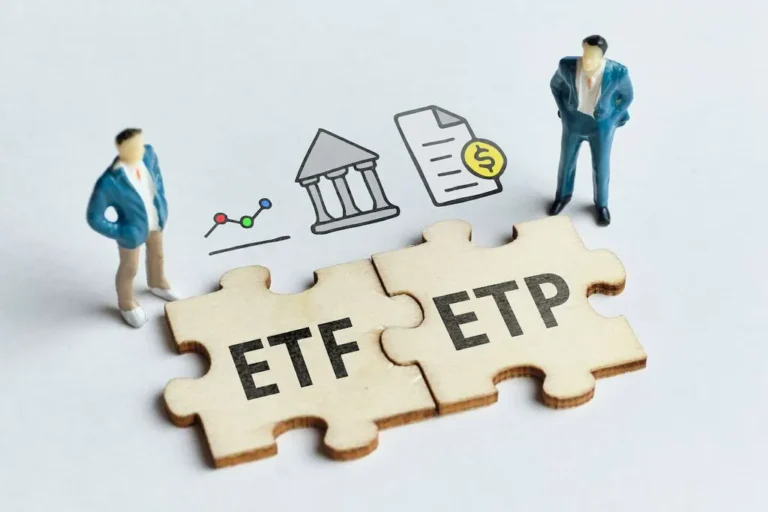What Are the 4 Different Types of Blockchain Technology?
Content
Public blockchains offer transparency and decentralization, while private blockchains provide enhanced privacy and control. However, each type of blockchain comes with its own set of advantages and disadvantages, and the best choice ultimately depends on the specific needs and use case of the business. Public blockchains are great for fostering trust in open environments, providing cryptocurrencies that can be traded on platforms like Binance, Bybit, or Kraken. However, private blockchains are ideal for businesses that require faster transactions, stricter control over data, and increased privacy. For instance, a supply https://www.xcritical.com/ chain management system on a private blockchain could track product movement efficiently while keeping sensitive data confidential. A private blockchain, also known as a permissioned blockchain, is a distributed ledger technology (DLT) that operates within a closed network.
What Is a Private Blockchain? (AKA Permissioned Blockchain)
Private blockchains are only partially decentralized because public access to these blockchains is restricted. Some examples of private blockchains are the Stockbroker business-to-business virtual currency exchange network Ripple and Hyperledger, an umbrella project of open-source blockchain applications. A consortium blockchain is a type of blockchain where multiple organizations or entities come together to form a network, and each participant has a role in verifying and recording transactions on the network. This differs from private blockchains where a single entity controls the network and from public blockchains where anyone can join the network.
- Public blockchains, on the other hand, are open protocols, similar to the internet today.
- We will discuss IBM Food Trust in more detail in an upcoming article in this series.
- It wasn’t long before people started envisioning how blockchain technology could do far more than just manage cryptocurrency.
- This means that decision-making is decentralized, with each participant having a say in the direction of the network.
- Transactions are verified and recorded through a consensus mechanism where all participants must agree on the validity of each transaction before it is added to the blockchain.
- One of the key benefits of this approach is that all transactions are processed in real time, which can improve performance compared to other types of blockchains.
Arbidex integrates dLIMIT & dTWAP powered by Orbs
Permissioned blockchains only allow verified participants to public vs private blockchain perform specific actions. Anyone can join the network after verification of their identity and permission allocation. However, permissioned blockchains limit each user’s actions to their network permissions. The company has developed an extensive ecosystem of supporting tools and services to enhance Quorum’s value. GoQuorum is an open souce Ethereum client for developing private, permissioned blockchain networks.
Private (or Managed) Blockchains
It has also developed tools to help automate the process of weaving NFTs into enterprise supply chains. Because it is open-source and accessible to anyone, it is more likely to attract the best developers and entrepreneurs who can create new applications and use cases for the technology. This is the killer application for the security token industry bringing legal and compliant liquidity pools to any integrated digital asset.

Written by LBM Solutions – Blockchain Development Company
However, they may not be suitable for businesses that require fast transaction speeds, low energy consumption, and a clear governance structure. The main advantage of a private blockchain lies in scenarios where control and privacy are paramount. Organizations dealing with sensitive data, such as healthcare providers, benefit from the enhanced security and restricted access offered by private blockchains. In fact, when it comes to implementing private blockchains, collaborating with top blockchain development firms can further ensure the customization and optimization of the technology to meet specific industry needs. In the fast-paced world of blockchain technology, there’s no one-size-fits-all solution. Whether you value the openness and transparency of public blockchains or the privacy and efficiency of private blockchains, both offer unique advantages depending on your needs.
The record can’t be viewed by random third parties, but users can access their information through a smart contract. Governments could also use it to store citizen data privately but share the information securely between institutions. For example, imagine a business wants to improve transparency and accuracy in its accounting processes and financial reporting. The blockchain would provide an interface where entries are made by end users and then automates the rest of the accounting processes using encryption, verification, and consensus techniques. Thus, private blockchains control who is allowed to participate in the network.
Enterprises that will take the leap of providing their users with these guarantees can disrupt their respective markets by having an advantage over those that don’t. With all other things being equal, users will always prefer to receive these guarantees than not receiving them. Master The Crypto is a financial publisher that does not offer any personal financial advice or advocate the purchase or sale of any security or investment for any specific individual. Members should be aware that investment markets have inherent risks, and past performance does not assure future results. MTC has advertising relationships with some of the offers listed on this website. MTC does attempt to take a reasonable and good faith approach to maintaining objectivity towards providing referrals that are in the best interest of readers.

These chains aren’t necessarily exclusive—for example, your app could use a private, permissioned chain to maintain security while leveraging different permissions for the system. Private blockchain records can be edited, overridden or deleted by the operator of the network, according to Investopedia. Building and maintaining a blockchain can be expensive, so consider the cost of implementation and ongoing maintenance when choosing a blockchain for your business. While a Web3 Internet offers a promising future, it is not a standard and needs to be built on actual technologies such as IPv6 and blockchain. This is the view of Ralph Wallace (CEO of CyberSpatiale) who was speaking at the sidelines of the recent London Blockchain Conference. Leveraging the scalable and efficient BSV blockchain, digital art is witnessing transformative use cases, driven by non-fungible tokens (NFTs) and tokenisation.
While some are more straightforward and beginner-friendly than others, you shouldn’t encounter any difficulties with either of the top-rated exchanges. That said, many users believe that KuCoin is one of the simpler exchanges on the current market. The content published on this website is not aimed to give any kind of financial, investment, trading, or any other form of advice. BitDegree.org does not endorse or suggest you to buy, sell or hold any kind of cryptocurrency. Before making financial investment decisions, do consult your financial advisor.
Consider factors like data sensitivity, regulatory requirements, desired level of control, and the nature of your collaborations. Understanding these distinctions is the first step to unlocking the transformative potential of blockchain technology for your organization. Public blockchains offer a quick entry point into the blockchain world with established networks and protocols. However, for companies aiming for optimized performance, enhanced privacy, and bespoke solutions that align closely with their business model, a private blockchain becomes apparent. Despite the higher upfront costs and resource demands, the investment in a private blockchain can yield unparalleled advantages in efficiency, scalability, and competitive edge.
Transactions are cheap and fast, and it offers better scalability than a public blockchain network. It lets organizations set up a private, permission-based system alongside a public permissionless system, allowing them to control who can access specific data stored in the blockchain, and what data will be opened up publicly. The speed of private blockchains makes them ideal for cases where the blockchain needs to be cryptographically secure but the controlling entity doesn’t want the information to be accessed by the public. As long as users follow security protocols and methods fastidiously, public blockchains are mostly secure.
Example of private blockchain include Hyperledger, Corda, Ripple, and many more. A public but permissioned blockchain could take a few forms, but it would generally be publicly viewable, and anyone could be granted permission to participate or access it. Public blockchains can be secured with automatic validation methods and encryption that keep single entities from changing information in the chain (like cryptocurrency blockchains), or they can allow anyone to make changes. Truvera enables IDV providers and IAM systems to verify the same person across multiple businesses or siloed systems.
Continuing our exploration of public VS private blockchains, we now turn our attention to private blockchains. The purpose-built and exclusive nature of private blockchains actually render them more insecure than the public blockchain. Since both the sources of data and their validators are oftentimes within the same industry, all it takes is a bit of friendly collusion to completely rewrite the blockchain at will. Since the public blockchain is validated as quick as possible by numerous independent data centers all around the world, consensus is fast and data tampering is nearly impossible. Business networks need resilience, interoperability, permissioning, and privacy to succeed. These requirements, however, are out of scope for proprietary distributed ledgers, let alone traditional database technologies.

